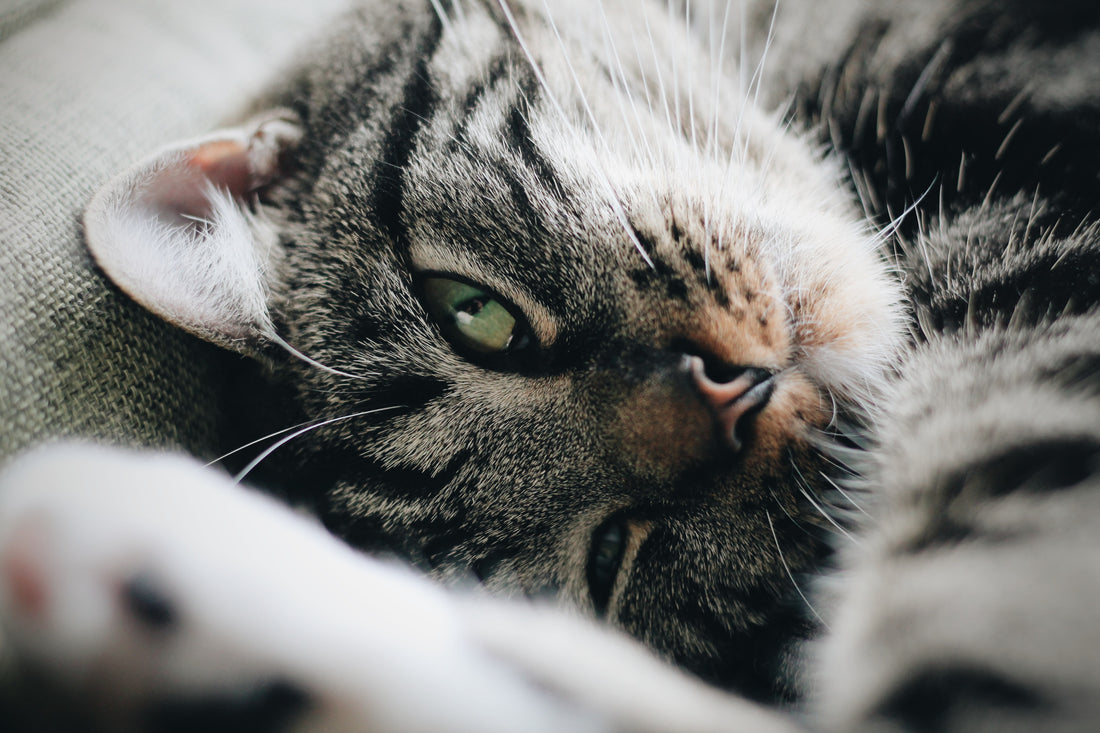If you have a cat, you are most likely aware that cats are very susceptible to upper respiratory illnesses. You are probably also aware of FHV, Feline Herpesvirus.
Because most cats are exposed to FHV at some point in their lives, it’s important to recognize the symptoms, and learn how best to manage them.
What is Feline Herpesvirus?
Feline Herpesvirus is an infectious disease that only affects cats and is caused by feline herpesvirus type-1. It causes upper respiratory symptoms that may only last a few weeks, but once your cat has been exposed, the virus will remain in their body forever, and flareups may become chronic, affecting your cat’s health and quality of life.
It’s important to note that cats are highly susceptible to upper respiratory illnesses, but they can be caused by both viral and bacterial infections. So, despite presenting with the same symptoms, it may not be due to the virus.
Older cats, kittens, and cats with weakened immune systems are especially at risk, but the virus itself can lead to the deterioration of the immune system even in a healthy cat.
One way to determine if it is viral, and not bacterial, is if infections become more frequent, or persistent. The virus can become reactivated, especially if a cat is already immune compromised, and even if they are stressed in any way.

How Do Cats Contract Feline Herpesvirus?
Cats become infected with Feline Herpesvirus when they come into contact with another cat that has the virus.
Additionally, objects like toys, dishes, litter boxes, and bedding can have viral particles on them, and will also spread the infection.
Basically, any “wet” secretions from the eyes, nose, or mouth on any surface contains the virus, and are highly contagious until they are dry. Once secretions are dry, they are no longer as contagious, however, using bleach is recommended to disinfect any items a sick cat has been around, to greatly reduce the chances of the virus spreading.
What are the Symptoms of Feline Herpesvirus?
Interestingly, symptoms of Feline Herpesvirus are very similar to symptoms of the common cold in people!
- Congestion
- Eye discharge
- Runny nose
- Sneezing
- Coughing
- Conjunctivitis
- Lack of appetite
- Lethargy
- Fever

Treating and Managing Feline Herpesvirus
Once a cat has contracted FHV, they will most likely have it for life.
Just like the Herpes Virus in people, the virus lays dormant, arising when the immune system is compromised, or during times of stress.
Knowing there is no way to eradicate it, treatment then shifts to “living with it”, and managing the symptoms.
L-Lysine Supplements For Feline Herpesvirus
The most widely known supplement recommended for cats with upper respiratory illnesses is L-lysine.
L-lysine is an essential amino acid, necessary for the production of antibodies that help fight infection, while also promoting normal immune system response.
Support your cat’s healthy respiratory function by adding an L-lysine supplement to their daily diet. Available as a chew or in an easy-to-use powder, with a taste cats love!

Products related to this article:
Every Sale Supports a Shelter Pet. Learn More.
Made in Vermont. Learn More.
If you suspect your pet is sick, call your vet immediately. For health-related questions, always consult your veterinarian, as they have examined your pet, know the pet's health history, and can make the best recommendations for your pet.




